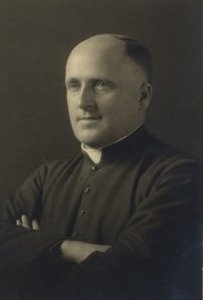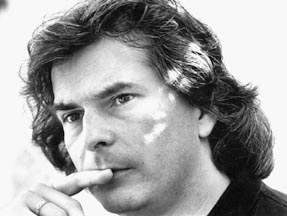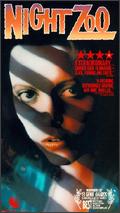Telefilm Canada is a Crown corporation reporting to Canada's federal government through the Minister of Canadian Heritage. Headquartered in Montreal, Telefilm provides services to the Canadian audiovisual industry with four regional offices in Vancouver, British Columbia; Toronto, Ontario; Montreal, Quebec; and Halifax, Nova Scotia. The primary mandate of the corporation is to finance and promote Canadian productions through its various funds and programs.
Claude Jutra was a Canadian actor, film director, and screenwriter.

The history of cinema in Quebec started on June 27, 1896 when the Frenchman Louis Minier inaugurated the first movie projection in North America in a Montreal theatre room. However, it would have to wait until the 1960s before a genuine Quebec cinema industry would emerge. Approximately 620 feature-length films have been produced, or partially produced by the Quebec film industry since 1943.

The Decline of the American Empire is a 1986 Canadian sex comedy-drama film directed by Denys Arcand and starring Rémy Girard, Pierre Curzi and Dorothée Berryman. The film follows a group of intellectual friends from the Université de Montréal history department as they engage in a long dialogue about their sexual affairs, touching on issues of adultery, homosexuality, group sex, BDSM and prostitution. A number of characters associate self-indulgence with societal decline.

Léolo is a 1992 Canadian coming of age-fantasy film by director Jean-Claude Lauzon. The film tells the story of a young boy named Léo "Léolo" Lauzon, played by Maxime Collin, who engages in an active fantasy life while growing up with his Montreal family, and begins to have sexual fantasies about his neighbour Bianca, played by Giuditta del Vecchio. The film also stars Ginette Reno, Pierre Bourgault, Andrée Lachapelle, Denys Arcand, Julien Guiomar, and Germain Houde. Gilbert Sicotte narrates the film as the adult Léolo.

The Prix Albert-Tessier is an award by the Government of Quebec that is part of the Prix du Québec, given to individuals for an outstanding career in Quebec cinema. It is awarded to script-writing, acting, composing music, directing, producing and cinematographic techniques. It is named in honour of Albert Tessier.

Jean-Claude Lauzon was a Canadian filmmaker and screenwriter. Born to a working class family in Montreal, Quebec, Lauzon dropped out of high school and worked various jobs before studying film at the Université du Québec à Montréal. His two feature-length films, Night Zoo (1987) and Léolo (1992), established him as one of the most important Canadian directors of his generation. American film critic Roger Ebert wrote that "Lauzon is so motivated by his resentments and desires that everything he creates is pressed into the cause and filled with passion."

Night Zoo is a 1987 Canadian film. It is directed and written by Jean-Claude Lauzon. It made its debut at the 1987 Cannes Film Festival. The film was selected as the Canadian entry for the Best Foreign Language Film at the 60th Academy Awards, but was not accepted as a nominee.
Jean-Claude Labrecque, was a director and cinematographer who learned the basics of filmmaking at the National Film Board of Canada.
The 34th National Assembly of Quebec was the provincial legislature in Quebec, Canada that was elected in the 1989 Quebec general election and sat from November 28, 1989, to March 18, 1992; from March 19, 1992, to March 10, 1994; and from March 17, 1994, to June 14, 1994. The Quebec Liberal Party government was led by Robert Bourassa throughout most of the mandate except in the final months of the government prior to the 1994 elections, when Daniel Johnson Jr. succeeded Bourassa as Premier of Quebec.
Rebels with a Camera is a 2006 documentary film by Quebec director Denys Desjardins produced by the National Film Board of Canada (NFB). The title is a reference to the film Rebel Without a Cause
The Cat in the Bag is a 1964 drama film by Gilles Groulx, which played a seminal role in the development of Quebec cinema. The film's themes, improvisational style, hand-held camera work and evocative music signalled the emergence of a new generation of Quebec films and filmmakers.
Tadpole and the Whale is a Canadian children's fantasy film, directed by Jean-Claude Lord and released in 1988 as part of the Tales for All series.
The 25th Canadian Film Awards were announced on October 12, 1973, to honour achievements in Canadian film.

Maria Chapdelaine is a 1934 French drama film directed by Julien Duvivier and starring Madeleine Renaud, Jean Gabin and Jean-Pierre Aumont. It is an adaptation of the 1913 novel of the same title by Louis Hémon set in rural Quebec about a young woman who becomes involved with a farmer, trapper and an immigrant drifter from Paris. The story was adapted again for a 1950 film directed by Marc Allégret.
Far from You Sweetheart is a 1976 Canadian comedy-drama film, directed by Claude Fournier. The film stars Dominique Michel and Denise Filiatrault as Rita and Florence, two sisters who are working in a munitions factory during World War II, while still dreaming of finding husbands and getting married.
Let's Talk About Love is a Canadian comedy-drama film, directed by Jean-Claude Lord and released in 1976. A satire of television production, the film stars Jacques Boulanger as Jeannot, a television variety show host who becomes disillusioned with the television industry, and begins to reveal the behind-the-scenes behaviour of his colleagues on the air, including allegations of sexual exploitation, bribery, payola and attempts to bury celebrity scandals before they get reported.
Panic is a Canadian thriller drama film, directed by Jean-Claude Lord and released in 1977. The film centres on a crisis in the fictional city of Port-Champlain, Quebec, after industrial pollution has poisoned the city's drinking water.






